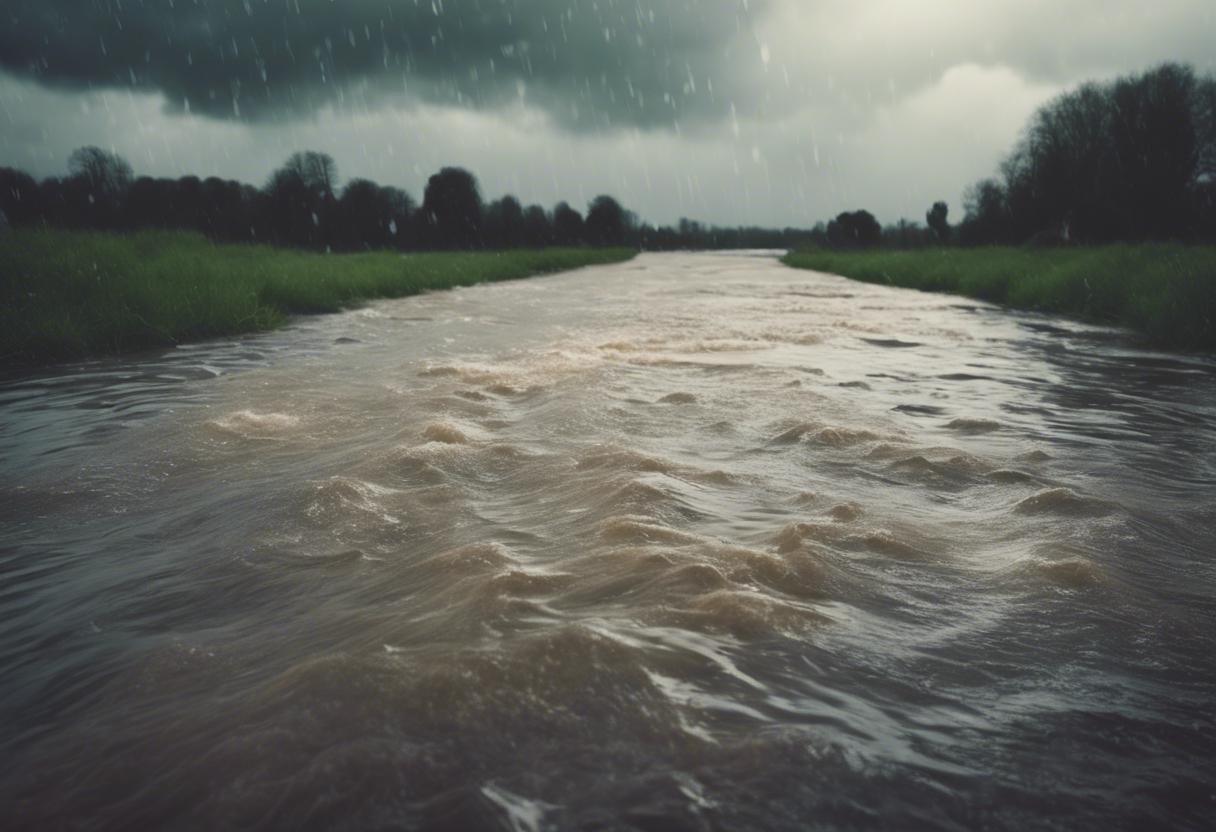From early Friday, continuous heavy rain in Nepal has resulted in flooding and landslides that have caused at least 66 deaths, officials reported on Saturday. An additional 69 individuals are missing, with 60 injured since Friday, per data received from Dil Kumar Tamang, a Home Ministry representative.
The capital city and surrounding Kathmandu valley, home to nearly 4 million individuals, were most severely impacted. The extreme weather conditions brought daily life to a complete halt, with flooding causing significant disruptions to vehicular flow.
In response to the crisis, relief teams employed helicopters and inflatable rafts to assist people isolated on rooftops or elevated regions. It was noted that in some parts of Kathmandu, rainfall measuring as much as 322.2mm (12.68 inches) was recorded over a 24-hour period.
The incessant rain has caused rivers across the Himalayan nation to overflow, leading to damages to roads and bridges, according to authorities. The aftermath of these river spillovers and the prolonged monsoon downpours experienced across South Asia has led to police efforts to reopen 28 highways blocked by landslides, as confirmed by police spokesperson Dan Bahadur Karki.
Kathmandu’s weather forecasting official, Binu Maharjan, foresees a continued rainfall until Sunday, attributing the lengthy rain to a low-pressure system affecting areas in adjacent India.
As Maharjan explained to Reuters, “The weather is expected to clear only after Sunday morning. Up until then, expect heavy rains.” She further elaborated that most central and eastern areas experienced rain varying from moderate to extremely heavy, between 50mm (2 inches) and over 200mm (8 inches), with moderate levels recorded in other regions.
Kathmandu airport spokesman, Rinji Sherpa, stated that while international flights are functional, many domestic flights are experiencing disruptions.
In southeast Nepal, the Koshi river, which regularly causes fatal floods in India’s eastern neighbour, Bihar, was reported to be flowing over the danger level, per an official. Handling 450,000 cubic feet per second (cusec), versus the standard 150,000 cusecs. Ram Chandra Tiwari, the chief bureaucrat in the region, reported an increase in current river levels.
Every year during the monsoon period, a multitude of individuals succumb to their deaths due to prevalent landslides and swift floods in a mountainous country. As per the authorities, starting from mid-June when the seasonal monsoon precipitation began, a minimum of 254 fatalities have occurred. Additionally, there are 65 individuals unaccounted for following landslides, flooding and lightning strikes. – Reuters
(c) 2024 Copyright Thomson Reuters

